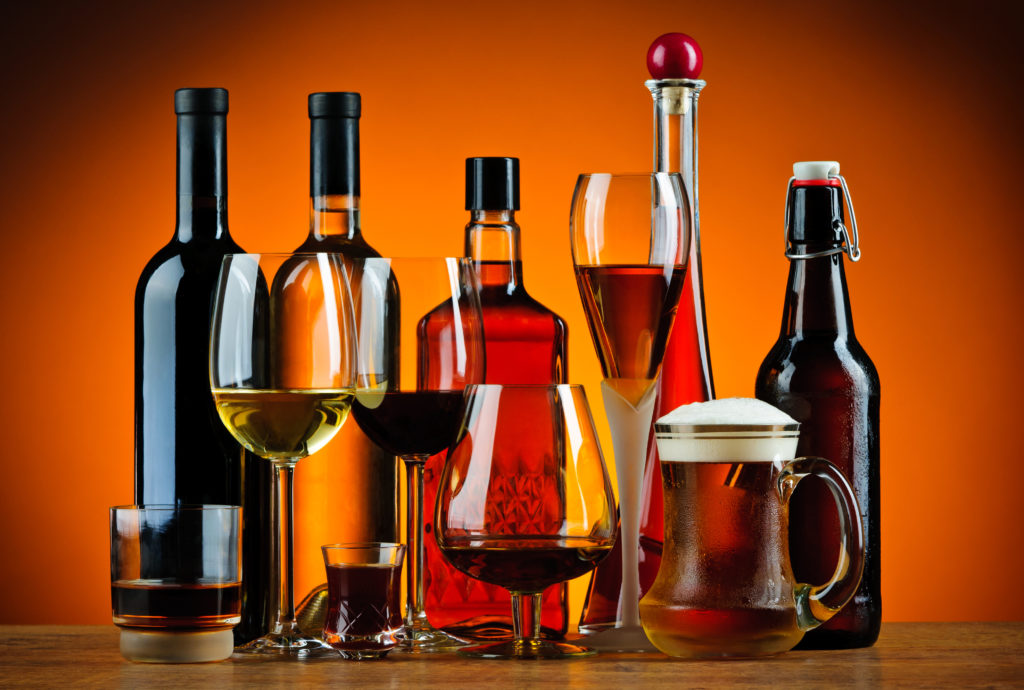Quick Hits
Daily brief research updates from the cognitive sciences

The tide seems to have turned on alcohol. Though we have always known that excessive alcohol consumption is negative there were for a long time inconsistencies with the research into modest levels of alcohol consumption – with multiple studies showing beneficial effects.
These effects could, however, be from other sources, such as the antioxidants in red wine, or the increased social contact through drinking with friends. I reported here on how alcohol even in modest amounts can lower life expectancy – gulp! However, mild amounts only had mild effects – that’s the good news for you (us) drinkers.
A new study just published has looked at correlations between alcohol consumption and iron levels in the brain. High iron levels in the brain is associated with various neuro-degenerative conditions such as Alzheimer’s and reduced cognitive function. The data was taken from the UK’s biobank and data from 21’000 people was analysed. This connects various lifestyle factors, personality, demographic, cognitive function, and is combined with brain scans and other biological data.
The researchers around Anya Topiwala of the University of Oxford found that more than seven units per week was associated with markers of high iron in a region of the brain called the basal ganglia. The basal ganglia is an important part of the brain associated with, amongst others, reward, but also motor control, and learning. This higher iron accumulation was associated with slower executive function, lower fluid intelligence, and slower reaction times.
There were other regions of the brain which showed higher iron levels, but they didn’t find strong and robust enough associations to deem these causal.
There are a number of caveats to the study we also know for example, that many people underestimate how much alcohol they drink. So, seven units is a very rough estimate.
However, this does show and support other research that shows even moderate alcohol consumption can have detrimental effects on the brain and cognition. Low to mild quantities though do show mild, if any, correlations to these declines.
So, the advice is simple – go easy on the drink!

Andy Habermacher
Andy is author of leading brains Review, Neuroleadership, and multiple other books. He has been intensively involved in writing and research into neuroleadership and is considered one of Europe’s leading experts. He is also a well-known public speaker speaking on the brain and human behaviour.
Andy is also a masters athlete (middle distance running) and competes regularly at international competitions (and holds a few national records in his age category).
Reference
Anya Topiwala, Chaoyue Wang, Klaus P. Ebmeier, et al.
Associations between moderate alcohol consumption, brain iron, and cognition in UK Biobank participants: Observational and mendelian randomization analyses.
PLOS Medicine, 2022; 19 (7): e1004039
DOI: 10.1371/journal.pmed.1004039
More Quick Hits
Neurons for alcohol withdrawal
I’ve reported on alcohol a number of times. Most recently reporting that even low quantities of alcohol appear to age the brain (however, higher quantities are much worse). Researchers had previously found that a signalling molecule pathway in the brain seemed to...
How the Arts Help Self Control
Quick HitsDaily brief research updates from the cognitive sciencesome people criticise arts education, thinking that it is more play and has no clear life function. Normally a certain type of conservative. This is short minded; we know that arts...
How the gut communicates with your brain
Quick HitsDaily brief research updates from the cognitive sciences ust after publishing the article on Serotonin and stating that the gut and brain’s serotonin systems can be considered separate entities, out comes a piece of research to show that...
Are you an “elite sleeper”? It’s in your genes.
Quick HitsDaily brief research updates from the cognitive sciences ’ve reported many times on different aspects of sleep and how important this is for health in general and for brain health in particular. You can go here for a short review of all...
Controlling social mingling by laser
Quick HitsDaily brief research updates from the cognitive sciences here has been plenty of research into brain areas that contribute to our social brain but these researchers around Stephen Mague at Duke University went a step, or two, further and...
Exercise is Infectious
Quick HitsDaily brief research updates from the cognitive sciences his is an older study (2017) I came across and found fascinating. As many of you regular readers will know I have reported many times on the benefits of exercise. But this study was...






